
The research neuroscientist at the University of California Berkeley provided insight on findings from the US POINTER study and why previous thoughts on the link between relevant biomarkers and cognition may be slightly incorrect.

The research neuroscientist at the University of California Berkeley provided insight on findings from the US POINTER study and why previous thoughts on the link between relevant biomarkers and cognition may be slightly incorrect.
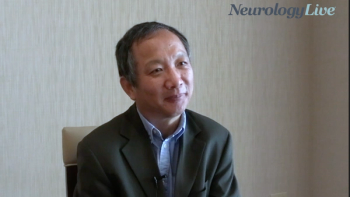
The neuromuscular neurologist at the Cleveland Clinic discussed findings from an analysis presented at AANEM 2023 that investigated the safety and efficacy of subcutaneous efgartigimod in patients with myasthenia gravis. [WATCH TIME: 5 minutes]
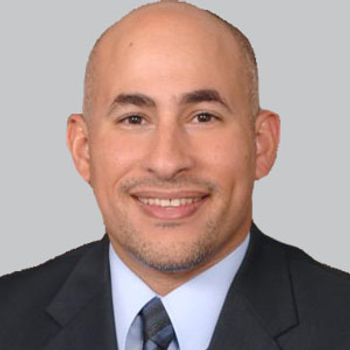
Group-level analyses indicated that a combination of cipaglucosidase alfa and miglustat outperformed alglucosidase alfa/placebo in various motor function and patient-reported outcome measures, with notable improvements in walking tests and quality of life aspects like 'ability to move around' and 'energy level.'
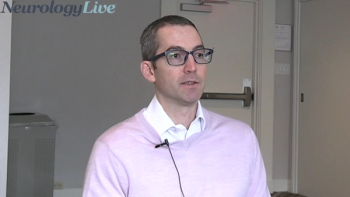
The associate director of the Alzheimer’s Disease Research Unit at the Yale School of Medicine discussed the mechanism of action of ALX-001, a highly selective agent in development for neurodegenerative diseases. [WATCH TIME: 5 minutes]
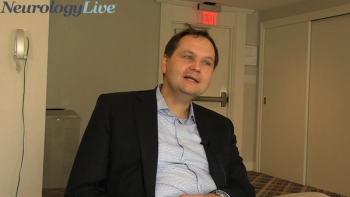
The professor of neurology, psychiatry, and pharmacology at the NYU Grossman School of Medicine commented on the differences in mechanisms and clinical trial data between lecanemab and donanemab. [WATCH TIME: 5 minutes]

Kevin Church, PhD, chief scientific officer at Athira Pharma, discussed preclinical findings of fosgonimeton where the therapy exhibited procognitive effects among mice models in Alzheimer disease, as presented at CTAD 2023.
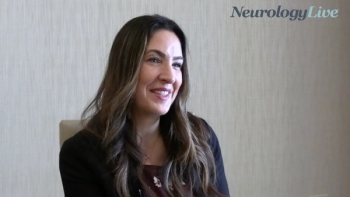
The founder of Strategic Advocacy Solutions LLC discussed the critical role of psychosocial support throughout various stages of neuromuscular diseases, emphasizing the impact of transitions on patients' emotional well-being. [WATCH TIME: 5 minutes]

Brendon Yee, PhD, a respiratory and sleep physician at the Woolcock Institute of Medical Research, discussed findings from a recent phase 1 trial presented at World Sleep Congress 2023 in which ALKS 2680 demonstrated improvements in wakefulness among patients with narcolepsy type 1.
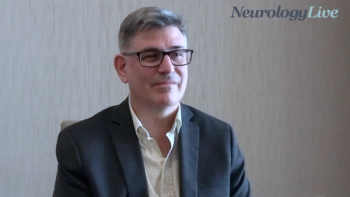
The director of the neuromuscular diseases division at the University of Washington discussed findings from a new post hoc analysis presented at AANEM 2023 that showed that zilucoplan treatment significantly reduced fatigue in patients with myasthenia gravis. [WATCH TIME: 6 minutes]
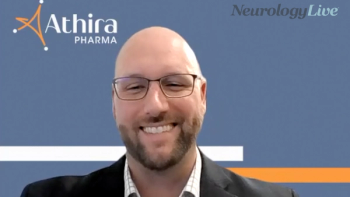
The chief scientific officer at Athira Pharma talked about new preclinical results presented at the 2023 NEALS Annual Meeting on the investigational therapy ATH-1105 for patients with amyotrophic lateral sclerosis. [WATCH TIME: 5 minutes]

Recent findings from an analysis of the CHAMPION MG study suggest that ravulizumab continues to be an effective therapy for patients with generalized myasthenia gravis, regardless of whether they had received prior IVIg treatment.
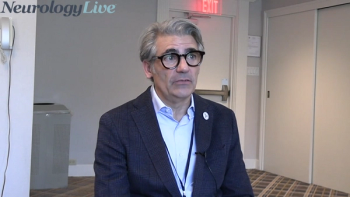
The vice president of Innovation and New Technologies at Grifols provided perspective on the interim phase 2 findings of ABvac40, a vaccine in development for patients with Alzheimer disease. [WATCH TIME: 3 minutes]

The chief medical officer of NeuroTherapia provided insight on promising phase 1b data assessing NTRX-07, a CBR2-targeting agent in development for patients with early-stage Alzheimer disease.
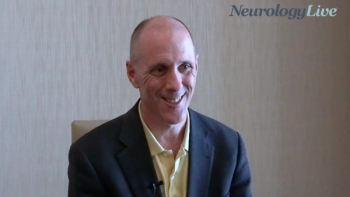
The professor and chair of neurology at Virginia Commonwealth University discussed a study conducted among neurologists that revealed healthcare disparities in the treatment of myasthenia gravis, particularly related to access to care and therapeutics. [WATCH TIME: 5 minutes]

Recent research, presented at the 2023 AANEM Annual Meeting, emphasized the potential need for patient support programs targeting at-risk populations to enhance disease management and reduce acute care utilization in myasthenia gravis.
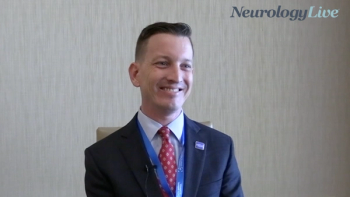
The director of disability policy at the Muscular Dystrophy Association discussed his lecture at AANEM 2023 on how clinicians can advocate for their patients to help improve accessibility and health equity. [WATCH TIME: 7 minutes]

Among 67 patients with generalized myasthenia gravis studied from January 2021 to June 2023, 89.5% failed to meet clinical trial inclusion criteria, with the most common reason being a Myasthenia Gravis Activities of Daily Living score of less than 5.

In a new post hoc analysis of RAISE-XT, early responders to zilucoplan maintained their response throughout the long-term open-label extension, irrespective of baseline characteristics.

Zilucoplan demonstrated significant and sustained improvements in myasthenic fatigue when compared with the placebo in the phase 3 RAISE study and its extension trial, RAISE-XT.

The assistant professor at Virginia Commonwealth University provided comment on her presentation from AANEM 2023, and the need to raise awareness towards nonneuromuscular symptoms of Duchenne muscular dystrophy. [WATCH TIME: 4 minutes]

The clinical research director of the UCSF Multiple Sclerosis Center talked about challenges in accessibility for the 3 approved therapies for NMOSD caused by third-party payor resistance as well as the importance of educating clinicians about the effectiveness of inebilizumab. [WATCH TIME: 3 minutes]

The safety and tolerability of efgartigimod was consistent across different indications and doses, showing comparable rates of treatment-related adverse events with placebo in clinical trials for myasthenia gravis, primary immune thrombocytopenia, and pemphigus.

A post hoc analysis of the phase 3 RAISE study evaluating zilucoplan, a complement C5 inhibitor, showed significantly fewer patients experienced worsening and fewer requiring rescue therapy while on medication compared with placebo.
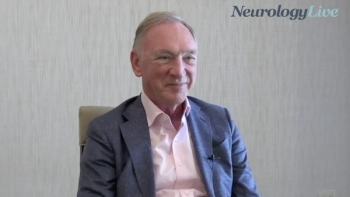
The professor of neurology at Cedars-Sinai Medical Center talked about findings from the ADHERE trial assessing efgartigimod, a human IgG1 antibody Fc fragment, as a treatment for patients with chronic inflammatory demyelinating polyneuropathy. [WATCH TIME: 6 minutes]

A retrospective study presented at the 2023 AANEM meeting revealed that social determinants of health are linked to poorer treatment outcomes in myasthenia gravis patients, emphasizing the need for identifying and supporting at-risk individuals.

In a recent post hoc analysis presented at the AANEM meeting, findings highlight the positive impact of vutrisiran on quality of life, disability, gait speed, and nutritional status across different neuropathy impairment score quartiles.

Elevated creatine kinase levels were not found to be a prognostic factor for the development of PASC in encephalopathic COVID-19 patients, according to a retrospective chart review analysis.

In a recent online survey of 150 participating neurologists in the US, 74.7% reported that patients with generalized myasthenia gravis found it difficult to afford their prescribed therapies, and 60.0% noted an increased likelihood of exacerbation or hospitalization for these patients.
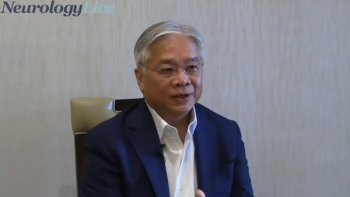
The division director of Neuromuscular Medicine & EMG at USF Health provided an overview of the open-label findings from ADAPT-SC, a phase 3 study assessing subcutaneous efgartigimod in patients with myasthenia gravis. [WATCH TIME: 3 minutes]

Vutrisiran and patisiran treatment led to noticeable reductions in neurofilament light, indicating a potential biomarker of treatment response in hATTR amyloidosis patients.